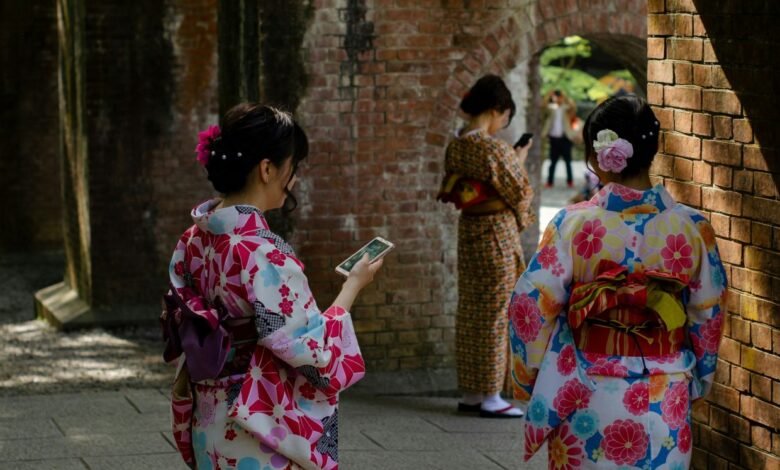Japan City Proposes 2-Hour Daily Smartphone Limit for Residents

▼ Summary
– Toyoake City in Japan is proposing a non-binding ordinance recommending residents limit smartphone use to two hours daily outside work or school, with no penalties for non-compliance.
– The proposal aims to prevent health issues like sleep problems caused by excessive device use, as stated by the mayor.
– It includes specific time-based advice, urging elementary students to avoid smartphones after 9pm and older students after 10pm.
– The plan has faced online backlash for being unrealistic, leading the mayor to clarify that the guidelines are not mandatory and acknowledge smartphones’ usefulness.
– If passed, the ordinance will take effect in October, following a similar 2020 measure in Kagawa region that limited children’s gaming time.
In a bid to promote digital wellness, a Japanese city has put forward a proposal recommending residents limit their daily smartphone use to just two hours outside of work or school obligations. The initiative, introduced by Toyoake City in central Japan, is designed as a non-binding guideline with no penalties for non-compliance, focusing instead on raising awareness about the potential health impacts of excessive screen time.
Mayor Masafumi Koki explained that the measure aims to address growing concerns over physical and mental health issues linked to prolonged device usage, such as sleep disturbances and eye strain. Under the draft ordinance, elementary school students would be advised to avoid smartphones after 9 p.m., while junior high students and older residents would be encouraged to stop using their devices by 10 p.m.
The proposal has sparked considerable debate online, with many residents expressing skepticism about its practicality. Critics argue that a two-hour daily limit is unrealistic for modern lifestyles, pointing out that activities like reading e-books or streaming content often require more time. Social media platforms have been flooded with comments from users who feel such decisions should remain within the purview of individual families rather than being suggested at a municipal level.
In response to the backlash, Mayor Koki clarified that the guidelines are entirely voluntary and not meant to be enforced. He emphasized that the city recognizes smartphones as essential tools for communication, information, and daily convenience, and the proposal is intended only as a friendly reminder to encourage mindful usage.
The draft ordinance is scheduled for review next week, and if approved, it will take effect in October. This is not the first time a Japanese locality has introduced screen-time recommendations; in 2020, Kagawa Prefecture implemented similar guidelines limiting children’s gaming time and evening smartphone use.
Recent data underscores the relevance of the issue: a March survey by the Children and Families Agency found that Japanese youth spend an average of more than five hours online each weekday. While the proposal may be symbolic, it reflects broader efforts to balance technology’s benefits with its potential drawbacks.
(Source: The Star)





